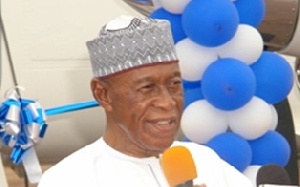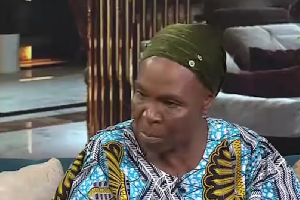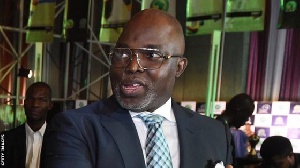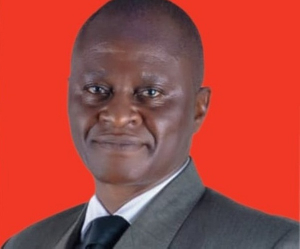The Asker and Baerum District Court in Oslo, Norway, which ruled in an alleged theft and corruption case against Tor Egil Kjelsass, a former employee of Scancem International ANS, last September, has noted that even though it was evident that huge sums of monies were transferred to ostensibly bribe Ghanaian and other African political leaders in the 1990s, it was difficult to lay blame on the accused.
It said Scancem International ANS would have unraveled the mystery surrounding the alleged scandal if it had, for instance, enquired from Mr. Paul Victor Obeng, a former ‘Prime Minister’ of Ghana, if he had received any monies.The court further observed that Mr. Tor Egil Kjelsass gave incorrect evidence about his 1998 accounts mainly because he did not want to put some politicians at risk. Between January 1993 and March 1998, amongst other things, USD 2,680,000.00 was transferred to an account at Unibank Luxembourg, and Scancem International ANS believed the account was owned by PV Obeng, a former Secretary of State in Ghana.
Mr. P.V. Obeng has denied ever receiving bribe monies from Scancem, arguing that the money he received was for consultancy services he rendered to the company. Obeng is still a consultant to Scancem International ANS, and the Court could not comprehend how he was not asked to confirm receipt of the moneys transferred to Tor Egil Kjelsaas's account.
The Court also failed to understand how Scancem International ANS could accept a system well into the 1990s, in which one man decided on the rules for bribery- who was to be bribed and with what amounts, -and also left it to him to make the bribes himself, without checking in any way whether those bribes were necessary or whether those to be bribed actually received the money.
“The only thing which can actually be established in this case is that the money was transferred to Tor Egil Kjelsass’ account at Unibank Luxemburg and that he made incorrect statements about the account during the internal investigations….while the Court regards it as serious that Tor Egil Kjelsass did not assist in clarifying matters on this point, it also finds that Scancem International ANS is also to be greatly reproached that they did not ask P.V. Obeng whether he had received the money,” the court indicated.
In an eight-page ruling, District Court Judge, Trine Standal maintained that since the Norwegian cement manufacturing company itself had established a system of bribery and corruption, the scheme was required to be untraceable. It said as was common with bribery culture, it was difficult to trace such bribe monies largely because they were made in cash, adding that the defendant’s failure to assist in clarifying matters that arose in the hearing affected the court’s perception of the evidence available.“In the course of hearing, the defendant found it hard to prove his innocence, but at the same time, the plaintiff had a problem proving he (defendant) was guilty,” the judge said.
On why the defendant misinformed his employers, his attorney, Vider Stromme, argued that it “was because he did not wish to put those who received the monies at risk…It was difficult for many recipients in Africa to open accounts abroad. Kjelsass withdrew cash in London or Luxemburg and passed it on to the correct recipients. Kjelsass took money to Africa by air”.The court however maintained, “Tor Egil Kjelsass is to be reprimanded for not having contributed to clarifying the matter, and the court has been somewhat in doubt as to the outcome of the case. As the court sees, it was a fact that the moneys which were to be used for bribery in Ghana were transferred to Tor Egil Kjelsass’ own account and that he failed to report this correctly, giving Scancem International ANS every reason to bring the matter to court.”
It would be recalled that Scancem, in October 2005, entered a writ of summons claiming recovery of monies allegedly, recklessly and dishonestly handled by Kjelsass when he was in-charge of the company’s interests in Africa. Even though he conceded collecting monies meant to bribe some African leaders, the defendant insisted that it was a normal company practice.
Scancem International ANS's culture of bribery and corruption in Ghana in the 1990s was built around Tor Egil Kjelsaas. The company failed to establish any kind of control system, accepting on the contrary, a system which meant that cashflows were hard to trace, partly because the money was handed over in cash and partly because it was transferred to bank accounts which could neither be traced nor controlled. Seen in this light, there was no way of documenting who handed the money over in cash or that money was actually handed over. Scancem has appealed against the ruling. e
















